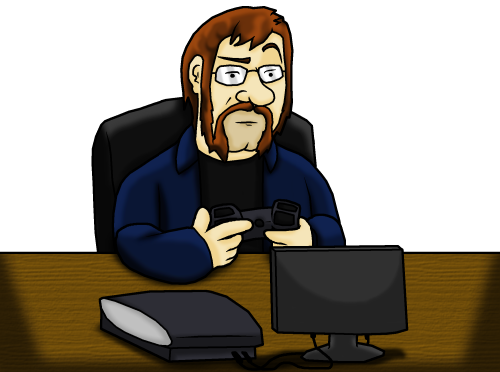The Chick Talks… Feminism
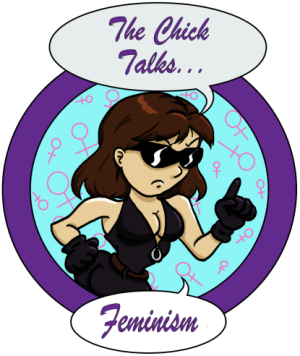
In this week’s guest blog post, Sam gives us a brief overview of why Hollywood still has some way to go when it comes to gender equality, and explains why attempts to make a strong female lead can backfire and result in removing part of what makes them a woman.
The other day, Sean and I were having a surprisingly feminist discussion1. We had just finished watching Skyfall with one of the blokes, let’s call him “Will” as that’s his name, when Sean and I got to discussing the Bond Girls. I mentioned that they were all window dressing, Sean trying to excuse that fact by underlining how the Bond franchise is a male power fantasy, and we somehow got on to the discussion of heroines in major Hollywood blockbusters and how pretty much every major action film is a male power fantasy. We both left the conversation feeling rather disheartened by Hollywood in general.
Sean means well, he’s trying his hardest to understand feminist issues despite coming from a position of privilege. As a boy, you’re bombarded with images of awesome action heroes such as John McClane, Tony Stark and James Bond to name a few: all manly men who defy the odds to win the day and beat the bad guys with a quip on their lips and a backdrop of explosions. They’re heroes, role models that do everything within their means and beyond to do what is right. Little boys everywhere want to be them or have adventures like them.
But what do you get if you’re a little girl?
Most of my role models when I was a child came from the small screen (Captain Janeway, Major Sam Carter, Willow Rosenberg, etc). Sarah Connor probably counts as a film example but aside from that? I was bombarded with images of Disney princesses as a child. I was supposed to identify with the likes of Bell and Ariel; quirky girls that were kind of aloof but ultimately boiled down to helpless damsels who could do little more than flail around and hope their boyfriends could resolve the conflict. Instead of looking up to women who overcame obstacles, I could be like Bell and be treated as a prize only to get shoved aside by the brutish Gaston when the real conflict starts, or I could be like Jasmine and get trapped in a giant hourglass, almost suffocating under a tonne of sand. Needless to say that as a budding tomboy I wasn’t impressed.
But what about the world beyond Disney? Who in major action films could I look up to?
After pointing out to Sean that it was rare for a Bond Girl to do anything besides getting shagged and captured, Sean became frustrated with me and asked me to name a female character I was happy with in recent cinema. All I could think of was Black Widow from the Avengers. Black Widow was awesome – just look at her opening scene.
When we first see her, we’re greeted to the sight of a vulnerable woman tied to a chair, being interrogated by Russian mobsters. She’s scared and helpless and the Russian mob boss is gloating, overconfident in his defeat of this spy and revealing all the details of his operations to her in the way that villains are known to do. Then Miss Romanov receives a phone call; her superiors calling her in as some evil sod has stolen an energy source and hypnotised a really good friend of hers into defecting. Black Widow’s response? Drop the fake helpless chick routine and beat the crap out of the mobsters. Using the chair she’s tied to. It was awesome.
Black Widow was consistently great throughout the movie; outwitting Loki by playing up the vulnerable chick angle, stealing an alien air bike and figuring out how to pilot it on the fly, outrunning the massive rage beast that is the Hulk…
“Ah, but Black Widow was terrified of the Hulk! She was whimpering through that encounter! The Hulk represents the alpha male and he was chasing after some scared little girl,” Sean argued the moment I brought Black Widow up.
“You’re seriously over-thinking it,” I replied. The Hulk is the Hulk: a massive rage beast that’s going to tear you apart indiscriminately. Everything he does is reactionary and all he’s aware of is that there’s something running away from him in that scene. He’s like a dog chasing a rabbit: he doesn’t know why it’s running but by god he’s going to catch it and probably break its neck in the process. That is the logic of the film, focusing on gender and how the Hulk is a big, scary bloke chasing a woman is a whole other dimension. It’s meta, if you will.
Besides, considering the circumstances, Black Widow did exceptionally against the Hulk. Yes, she was wide eyed with panic while she faced him but she’s a non-powered human who’s used to beating on mobsters: the goddamn Hulk is a little out of her league, don’t you think? Take Stark out of his power armour and I’m sure he’d have pretty much the same panicked expression. And then he’d be dead because Batman he ain’t.
Sean then tried to argue that Black Widow’s role whilst on the ship was interchangeable with agent Coulson’s, but I don’t think it was. Coulson needed to die at Loki’s hand to unite the team. Yes, Black Widow getting killed off by Loki may very well have had the same results but can you honestly tell me that Coulson would have been able to outrun the Hulk? Seriously? Without relying on memes to back up your argument?
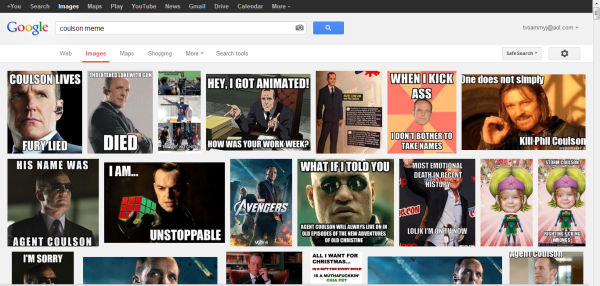
From this point, Sean wanted to find some other female characters to discuss. I tried Selina Kyle in the Dark Knight Rises but we quickly dismissed her as aside from her scene in the bar where she tricks Owen from Torchwood into using the phone belonging to someone at the centre of a city wide man-hunt, Ms. Kyle didn’t really do anything.
It’s here that I should probably define my idea of a good female action heroine. To paraphrase Batman, “it’s what they do that defines them”.
I don’t care if a female character gets captured or needs a helping hand or finds themselves being a victim; it’s what they do in those circumstances that separates them from being window dressing and allows them to be actual characters with characteristics. If they’re captured then they need to make a real attempt at escaping – don’t, say, sit there with a pissy look on their faces like Agent X from The Spy Who Loved Me, test the bonds! Try to manipulate the guard! Try to pick the lock! Try to find a loose bar or bit of wall to remove and sneak through the resulting gap! I know that male power fantasies dictate that the male lead needs to save the girl but that doesn’t mean the girl can’t meet him halfway. Even if she shows competency by escaping her cell, he can still clear a path to the exit by killing all the guards for her.
I’m also aware of the Hollywood trend of girls being little more than trophies for the men to earn in these fantasies, as this article can better explain than I can. Almost all modern-day Hollywood blockbusters have romantic sub-plots; Batman randomly winds up dating Selina with little build up to it, Skyfall had Bond sex up that Asian chick only for her to be forgotten about like yesterday’s lunch, in Die Hard 4 it’s heavily implied that the computer hacking sidekick is going to start bumping uglies with McClane’s headstrong yet vulnerable daughter, and so on. Now I’m not against romantic sub-plots so long as they’re done right. I’ve seen too many movies where the woman meets the man for the first time, instantly hates him but changes her mind to “god I want his cock in my mouth” within what would be a matter of hours in the movie’s timeline for no reason other than the male power fantasy called for it. Green Lantern comes to mind, for example.
It was a requisite in the nineties/noughties for women in action movies to be cold, workaholic bitches. The Spice Girls are probably partially to blame for this what with the whole “girl power” craze and all. It meant we ended up with a lot of heroines like the lead of the Underworld franchise, or Alice from the Resident Evil movies, or even Pamela Anderson’s character in Barb Wire. These women have very limited emotional ranges – their default being pissed off – rarely show enjoyment in anything, are always dressed sexily (and impractically) and get bloody angry if a man responds to her (lack) of attire by flirting or condescending her. They hate it when you call them “babe”. Naturally these women annoy me as what’s the point in doing what they do if they can’t enjoy themselves a little?
So Sean and I came up with three women that I was satisfied with: Sarah Connor, Ripley and Anne Lewis (from Robocop). All three were action-orientated women with a personality, whose actions didn’t rely on romance and were perfectly capable of looking after themselves. All of them also appeared during the 80’s (Connor didn’t actually step up until 1991 but she’s still six years older than the girl power craze of the nineties). Sadly, we couldn’t think of any women who appeared in a recent blockbuster who counts.
“But Sam,” I hear you cry, “Connor spent most of Terminator 2 pissed off! What makes her better than the likes of Alice?” Well, the simplest answer would be that there isn’t an obligatory moment in every Terminator movie where Connor runs around naked. The more complicated reason is that Connor has a reason to be pissed off: robots keep coming from the future to try to kill her and her son and she knows that she only has a few short years before Armageddon hits. The events of the first Terminator film traumatised her and she became a lot harder as a result. Alice doesn’t change much over the course of her movie franchise, her bland personality staying firmly in place from start to finish. She can be forgiven for being sullen in later movies because the whole world has gone to hell and by that point in time zombies have become a major inconvenience but in the first movie, she’s encountering the T-virus for the first time and her memory is acting up. You’d think she’d be a little more interested in what’s happening around her. Maybe be a little more than “a bit on-edge”?
A third reason why I’m more interested in the three 80’s women over their modern day equivalents may be attributed to feminine traits vs. masculine traits. This is also another reason why the heroines of the nineties were obliged to be the way they were. I became aware of this through an essay I think I read on http://www.feministfrequency.com but can’t currently find. The way the feminine vs. masculine traits works is that often in cinema, masculine traits such as strength, assertiveness and competitiveness are seen as positive attributes whereas feminine traits such as being emotional and sensitive are seen as being negative. This means that when writers go to make their protagonist, they usually wind up giving them lots of masculine traits, feminine traits being treated as weaknesses. Hollywood action girls are left being angry and tough, their feminine qualities dumbed down. She’s not allowed to be overly compassionate as that could be seen as being overly emotional which is bad! Better make her as fierce and independent as possible! Hence the moody protagonist from Underworld or Barb Wire. Our randomly selected 80’s heroine, Ripley, was allowed to be emotional – you could see the hurt on her face when she finds out how long she was in stasis for in Aliens and she was compassionate towards the little girl. Selene – the Underworld Protagonist I’ve been struggling to remember the name of and also chosen randomly for this comparison – was very muted, only really emoting as far as I recall when her temper flared.
It was around this point where I introduced Sean to the concept of the Bechdel Test2. This is an exercise to get people thinking about the way women are treated in the media. Passing the test is simple: all you need are at least 2 named female characters that have a conversation with each other that isn’t about a man. Sounds easy enough to pass, right? There are variations of test to make it harder, like Feminist Frequency’s suggestion of adding a time limit to the conversation but it still doesn’t sound too hard, right? Go on, Reader, try and name a few, I’ll wait.
…
Did you come up with any? Because Sean couldn’t think of a single film that passed. There are films that pass, as this page proves but in general, all the main players in Hollywood films tend to be men, thus lowering the likelihood of a film passing. There were three named women in the Avengers but they never talk to each other, so that doesn’t pass the test. None of the Batman films pass. I’m fairly certain that the only Bond film that passes is Skyfall, although Die Another Day came close but I’m hardly a Bond expert. I could go on but I think you get the point.
So what does all this mean? Why is it important and what can we do to change? I’m trying to take all of this information into account with my writing, which I pointed out to Sean. Blaise may seem like another hardened action girl on the surface but she’s actually the most in tune with her emotions out of the three protagonists of Tales of Sin. She’s socially awkward, only ever truly at ease around Doug and Gratin, she’s the most compassionate of the group, her outfit doesn’t present her as a sex object, her bust being a modest B-cup and so far she’s the only member of the trio that hasn’t been captured and needed rescuing. Sounds good, right?
The problem is that when writing Blaise, I’ve constantly got the tropes discussed in this post in mind and I’m constantly second-guessing myself. Is she too hard? Too vulnerable? Does having these events happen to her lessen her as a character? Is she a good feminist role model? There’s a lot of pressure to make her a “strong female character”, which is something a lot of writers find when they create a female protagonist. So do we ignore the tropes and write how we want or do we have to bend over backwards to create a character that defies conventions, possibly making a new convention in the process?
There is certainly a need for change. There shouldn’t be a set list of parameters on how to make a female character otherwise you’ll end up with an army of Alices and Selenes.
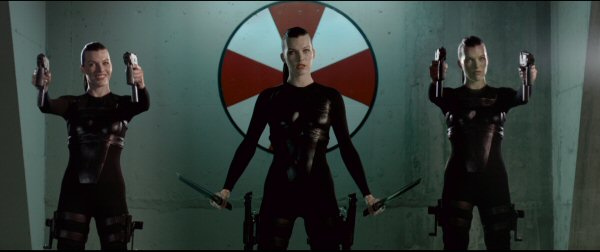
Being too hyper-aware of these tropes as you write isn’t particularly helpful either as you’ll spend all that time trying to make something perfect just for your character to cease to feel natural. The only way to change how female characters are written and what roles they are assigned is to stop seeing them as female characters and start just seeing them as characters. Start worrying more about what personality they have and not about what is (or isn’t) in their pants.
So is all this really important? Does this sort of thing really affect little girls that much? Well I can’t speak for everyone but I know it affected me. I thought I was weird as a kid because I didn’t want to be a princess and own a pony but instead wanted to play Pokémon with the boys. I thought tea parties were boring, instead using my dolls to act out awesome, action-packed adventures.
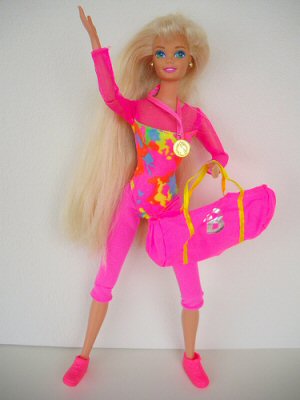
I looked at the TV and saw that there were only ever two types of girls being portrayed in the cartoons I was watching: tomboys and girlie girls. There were no in-betweens. So I chose the life of the tomboy, shunning pink, girlie stuff and wearing nothing but jeans and black t-shirts throughout my teens. I realise there’s more than one way to be feminine now but that’s the way I thought back then. But that’s just me right? Not everyone was as tuned in to the media as I was, right?
Well maybe you should ask yourself this if you think I’m making mountains out of molehills and think all of this feminism stuff is a non-issue. What kind of a world would you like your daughters to grow up in – whether they’re real or metaphorical? A world where they’re told that if they put their mind to it, they can overcome any obstacle and achieve their dreams? Or a world where they’re told that all they’re good for is being a prize for a man to win for overcoming his obstacles? A world that tells them that they can have any personality and still be considered awesome? Or a world that tells them that the only way to get ahead in life is to shed their femininity and become a hardened shell of a person?
Food for thought.
- I like how it’s “surprisingly” feminist, as if I only speak in masculine grunts and anti-feminist clichés. I think we slipped this conversation in between me telling her to get back into the kitchen and her polishing my shoes. – Ed. ↩
- I was worried it would involve pulling my pants down and coughing. – Ed. ↩
Post by Sam Dyer+ | May 25, 2013 at 12:00 pm | Films, James Bond, Three Blokes and a Chick Watch | 3 comments
Tags: Alien, Batman, feminism, guest blog, Resident Evil, Robocop, Terminator, the Avengers
